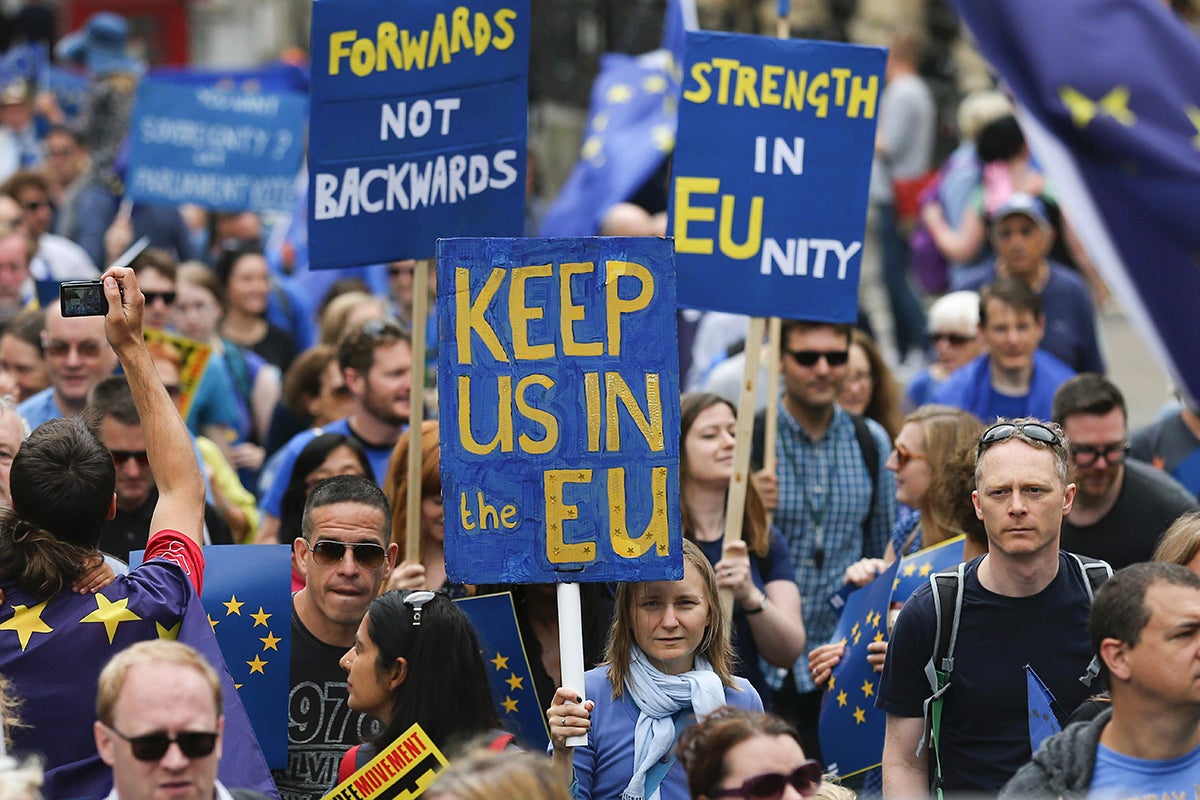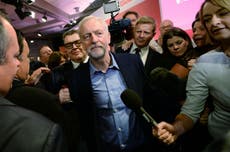It turns out that people who voted for Brexit were the most deprived of government funding – and Labour is to blame
It was Labour that, during its three terms in government in the last two decades, contributed so significantly to a country in which wealth and investment was entrenched in certain areas


I can’t be alone in counting down the very minutes until the interminable, unedifying spectacle of the Labour leadership election is behind us. When it is finally over (oh, for it to be so! Only three more days to wait, dear reader) we can collectively erase from our memories the particular series of events that led up to this disastrous period of political cat-fighting.
The trigger, lest you forget, was the Brexit vote cast in the EU referendum and the feeling among Labour MPs that Jeremy Corbyn was culpable because he failed to convince Labour voters outside London, the South East and Scotland that it was in their best interests to stay in Europe.
The diagnosis was half right. Yes, Labour must share some of the blame for Brexit, but (and, I should stress, I say this as no personal fan) to place that blame at the feet of Jeremy Corbyn is rather too simplistic. The problem started some 20 years ago.
Research by the Fabian Society, seen exclusively by my colleague Joe Watts earlier this week, revealed something very important about the way voters behaved on 23 June. A study of the way public spending is allocated around the country revealed that the financial “winners” – those who live in areas where public spending per head is higher, even when adjusted for economic output – were more likely to vote Remain, and those whose local economies were starved of public funds felt predisposed to leave the EU. Areas such as the East and West Midlands, the North East and Yorkshire and the Humber have done badly in terms of public investment for years, and this was the final reckoning.
As the study puts it, “the price of our failure to allocate resources fairly may be high, in terms of political psychology as well as material demands.”
Its conclusion is stark: “Having enough money helps households feel confident about the future and open to change; perhaps the same is true when it comes to places and public resources.”
For me, however, those two categories are so intrinsically linked that they cannot be separated. Places are nothing more than communities of people; how communities feel about their sense of place and purpose is how they feel about themselves. Whether or not households consider themselves to have enough money to live on depends very directly on the support they receive from public services to manage their lives.
If, for example, you live in a rural location with no reliable, affordable bus connection to the nearest large town, with its shops, amenities and job opportunities, then the cost of servicing a car is added to your list of weekly essentials. That’s not cheap. And that’s just one illustrative example of many; it’s also a neat response to anyone who ventures to claim that caring about “fiscal geography” is navel-gazing policy wonkery.
So, people are angry about how public funds are spread around the country unfairly, and that frustration was played out at the ballot box during the EU referendum. The problem, as so many have already pointed out, is that voters are angry at the wrong people. Many of the areas that do poorly out of home funding settlements did the best out of Europe. And yet the link between the predisposition to vote Leave and average regional public spending per head is stronger than the connection between voting preferences and economic performance.
This is bigger than party politics. Except it isn’t, because it is party politics that has created this desperate, needless situation – and Labour’s party politics specifically.
It was Labour that, during its three terms in Government in the last two decades, contributed so significantly to a country in which wealth and investment was entrenched in certain areas. Labour did, to its credit, invest in urban regeneration. It oversaw the renaissance of northern cities such as Manchester and Leeds. It helped London to transform itself into a world-leading capital. It focused spending on those urban areas where its voters were located – in, it must be remembered, cities and neighbourhoods that had been neglected by Thatcherism. But they missed the bigger picture: all the while, a portion of the country (towns and suburbs in the north and east, in particular) began to feel so ignored they turned their back on politics altogether. This is where Ukip fever was given space to build; it is where the appetite for Brexit fomented; it is where the EU referendum was lost.
The important thing about this study is that it is weighted for economic output. It doesn’t really tell us anything about whether the Government is doing enough to meet local needs (there’s a row that could be had about that, though I can understand the argument on both sides), but it does say a lot about how the potential of some communities has been stymied. And, furthermore, exactly how that feels.
It is odd to lecture the left about fairness, but it is time Labour took it more seriously. The party has campaigned aggressively (if not very successfully) on the unfairness of welfare cuts and the damaging impact of the austerity agenda, and yet it has had nothing to say about its own role in allocating funds disproportionately, nor much to add on how this situation might be fixed.
Labour is, if you want to put the most rose-tinted of positive spins on it, undergoing a period of transformation. The Corbynites perceive a beautiful butterfly wresting itself free from the cocoon of New Labour. I can’t say that’s what I’m witnessing but, either way, when the new leader is announced (finally!) on Saturday this is one problem that can go ignored no longer.
Unpicking the complex funding criteria and myriad tiny spending pots that make up our public spending arrangements is a job that is well overdue. Whether it follows the Conservatives in the call for greater local autonomy, or opts for a more aggressive form of redistribution from the centre, doesn’t really matter. The challenge for politics in 2020 and beyond is not just to make Brexit mean Brexit, but to heed the cry for help from the Brexiteers. The challenge is fairness. It is not too much to ask for Labour to have an answer to that.



Join our commenting forum
Join thought-provoking conversations, follow other Independent readers and see their replies